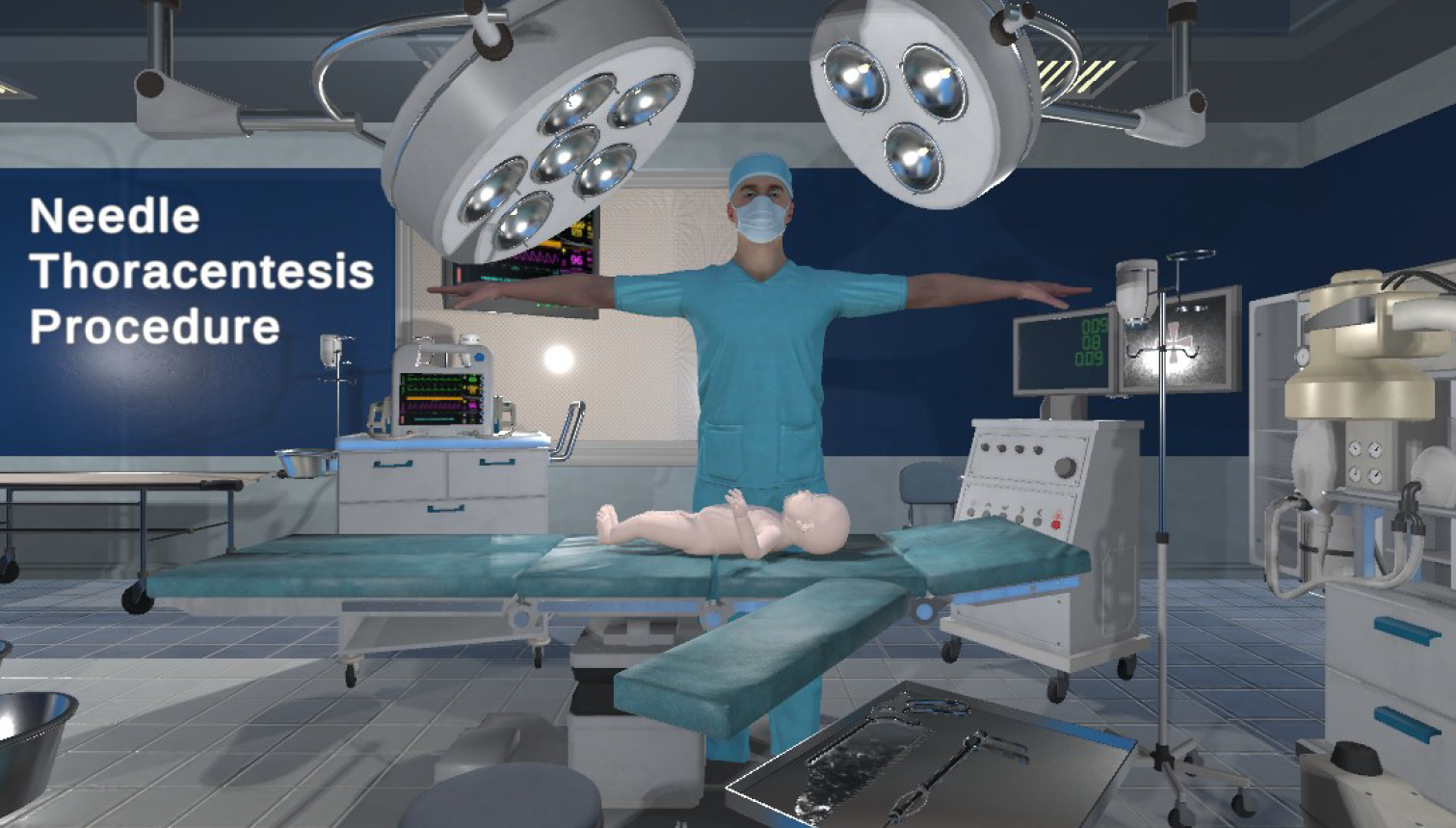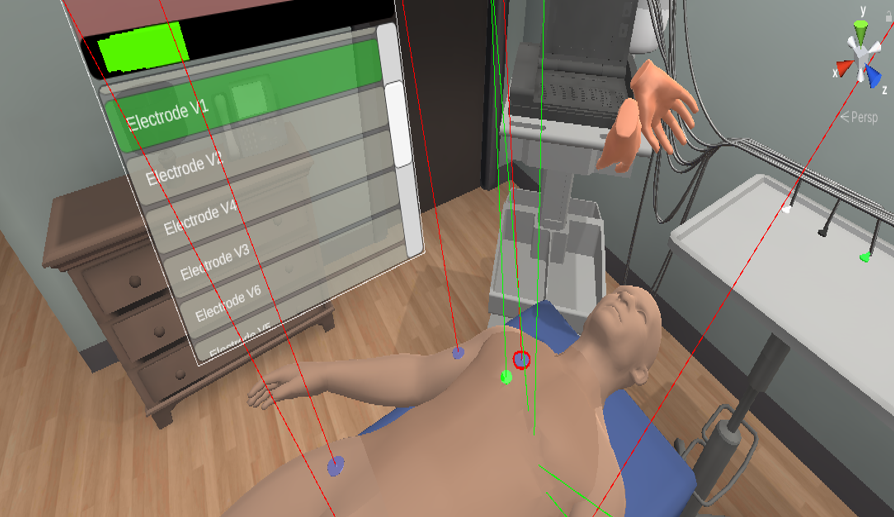
Around a quarter of individuals aged 65 and above undergo feelings of loneliness, which can profoundly affect their overall wellness and life satisfaction. Encouraging social interaction opportunities can bolster connections and assist individuals as they navigate life transitions related to aging, such as retirement, moving, or losing loved ones. Nonetheless, numerous communities struggle to provide the necessary support to fulfill social requirements. Utilizing immersive technologies like virtual reality (VR) offers a distinctive chance to bridge this resource deficit. We plan to apply our systematic approach to the design and evaluation of an immersive Cognitive Activity Social Technology (CAST) VR intervention, that provides aging adults a suite of virtual cognitive, social, and activity engagement applications. Read more […]

This projects is aimed at creating a virtual reality program using Unity to replicate an authentic hospital setting. This setting will encompass an adult patient room, an emergency department, and a waiting area. We would like to revolutionize the nursing education and training experience by establishing interactive communication between the user and adult avatars, and incorporating artificial intelligence, such as natural language processing (NLP) to enable lifelike interaction between the user and the human-like avatar. The simulator can also be used to stay up-to-date with the latest medical procedures. Read more […]

Performing procedures on neonates requires exceptional care and is prone to errors, more so than procedures on adults or even pediatric patients. The limited frequency of invasive neonatal procedures hampers the retention of necessary skills and impedes proper physician training. Utilizing augmented reality (AR) or mixed reality (MR) platforms, particularly employing the Microsoft HoloLens device, proves effective in clinical settings due to their capacity to incorporate realistic elements like manikins and surgical tools. Structured practice aimed at enhancing both cognitive and motor skills can mitigate skill deterioration. We’ve developed a prototype for the needle thoracentesis (NT) procedure within a mixed-reality environment. This guided simulator enables learners to proceed at their preferred pace and offers flexibility to learn through visual, auditory, or combined modalities. Read more […]
VR-Based Electrocardiogram Training Simulator

Virtual Reality (VR) provides immersive experiences within virtual environments, finding utility across various applications, including the cost-effective training of healthcare professionals. However, effectively integrating clinical feedback into simulation design poses a challenge to ensuring software usability. This paper discusses the development of a pipeline aimed at facilitating efficient participatory design for crafting a VR-based electrocardiogram training simulator. Furthermore, the study presents results from usability, content validity, and face validity assessments conducted on the ECG simulator. These findings suggest that the proposed approach is applicable for both creating and evaluating other VR-based medical training simulators. Read more […]